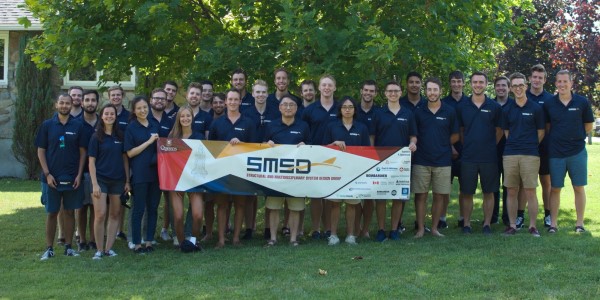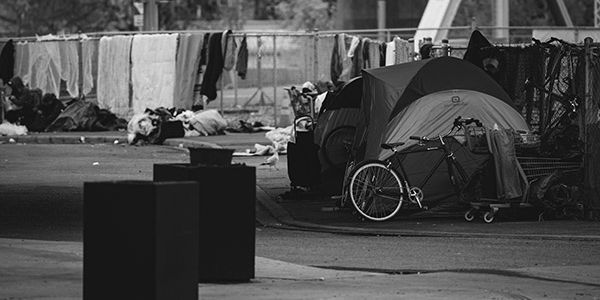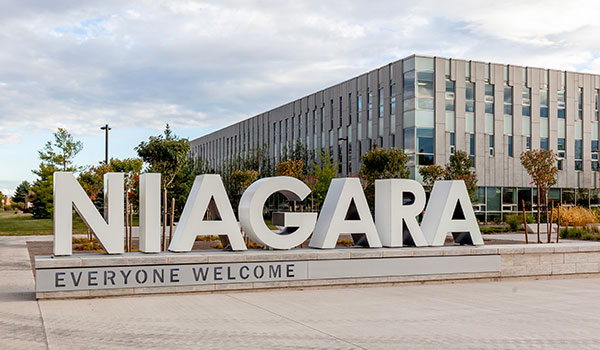In this edition:
-
- Canadians “should be confident in the strength and resilience of the Canadian economy:” deputy PM
- Air quality expected to deteriorate in Niagara, as wildfires continue
- Niagara Region developing permanent homeless shelters to replace seasonal facilities
- Construction companies say digital technology key to addressing labour shortages
- Niagara Region looking to make purchases in socially responsible way
- Niagara College-led SONAMI expands simulation and modelling with new member addition
- Lesley Rigg to be installed as Brock’s seventh President at Spring Convocation
Canadians “should be confident in the strength and resilience of the Canadian economy:” deputy PM
In remarks made yesterday, deputy prime minister Chrystia Freeland commented the Bank of Canada’s rate increase, noting first that the bank’s monetary policy is independent of the government, and that the government respects that independence.
“I want to underscore for Canadians why they should be confident in the strength and resilience of the Canadian economy,” Freeland added.
“Canada saw the strongest economic growth in the G7 in 2022, and in the first quarter of this year, our economy grew by 3.1 per cent, the strongest in the G7.
“Just this morning, the OECD predicted the Canadian economy will see the fastest rate of growth on average in the G7 for 2023 and 2024.”

Air quality expected to deteriorate in Niagara, as wildfires continue
The air quality in Niagara is expected to further deteriorate.
“Unfortunately, tomorrow it looks like it’s going to get worse,” Environment Canada meteorologist Victoria Nurse said on Wednesday.
She said fine particulate matter in the air over Niagara reached more than 100 micrograms per metre cubed (µg/m³) on Wednesday, caused by smoke from wildfires burning in northeastern Ontario and Quebec.
“It’s not good at all,” Nurse said.
But that number is expected to more than double on Thursday reaching as high as 250 µg/m³.
In comparison, she said, about 15 µg/m³ is considered on the high range of acceptable levels.
Niagara Region developing permanent homeless shelters to replace seasonal facilities
Niagara Region is planning to replace its seasonal homeless shelters in St. Catharines and Niagara Falls with permanent facilities, as a result of new provincial funding.
“Our intention right now is to take the capacity that we had through seasonal shelters, which are not really considered to be the ideal practice … and move into full year-round, 24/7 shelters,” said community services commissioner Adrienne Jugley.
Construction companies say digital technology key to addressing labour shortages
Nine in 10 Canadian construction companies say they are dealing with a shortage of skilled labour or trades and may need to consider alternatives, such as prefabrication and modularization or innovative new technology.
A survey by KPMG in Canada of 275 companies finds that the industry views digital technology as a solution to address those shortages, which they say are affecting their ability to bid on projects and meet deadlines amid unprecedented demand.
Niagara Region looking to make purchases in socially responsible way
Niagara Region’s corporate service committee recommends giving the green light to establishment of a social procurement policy that would leverage the municipality’s buying power beyond the traditional value-for-money approach to achieve a broad range of social benefits.
Approval by regional council next week would see a multidisciplinary working group develop a procurement strategy to include social, economic and workforce development goals in purchasing goods and services.

Niagara College-led SONAMI expands simulation and modelling with new member addition
The Structural and Multidisciplinary Systems Design (SMSD) Lab at Queen’s University has become the newest member of Southern Ontario Network for Advanced Manufacturing Innovation (SONAMI), a Niagara College-led consortium of post-secondary academic institutions that provides competitive, disruptive, and innovative solutions to Ontario’s manufacturers.
Lesley Rigg to be installed as Brock’s seventh President at Spring Convocation
Brock’s Spring Convocation will begin with a historic moment next week, as Lesley Rigg is installed as the University’s seventh President and Vice-Chancellor.
The milestone ceremony on Monday, June 12 at 10 a.m. will kick off the five-day celebration that will see about 3,500 graduands from seven Faculties receive their degrees.
Brock’s 113th Convocation includes nine ceremonies from June 12 to 16, taking place at 10 a.m. and 2:30 p.m. each day, except for Friday, June 16, when only a morning ceremony is scheduled.
Did you know?
In 1997, Apple had had to lay off a third of its workforce and was 90 days away from bankruptcy.
Focus on Equity, Diversity & Inclusion
7 Tips to Improve Diversity, Equity, & Inclusion In Small Businesses
As a small business, it can feel like the only way to promote diversity, equity, and inclusion in the workplace is through your hiring. This means small businesses may not have as many chances to recognize DEI—but that’s not necessarily the case. Smaller companies can also promote DEI among their existing workforce.
However, improving diversity, equity, and inclusion is easier said than done. Ideally, companies should start with a DEI strategy and plan. But that requires a lot of time and effort. So to improve DEI right away, here are some tips to get started.
Through the Daily Updates, the GNCC aims to deliver important business news in a timely manner. We disseminate all news and information we feel will be important to businesses. Inclusion in the Daily Update is not an endorsement by the GNCC.








